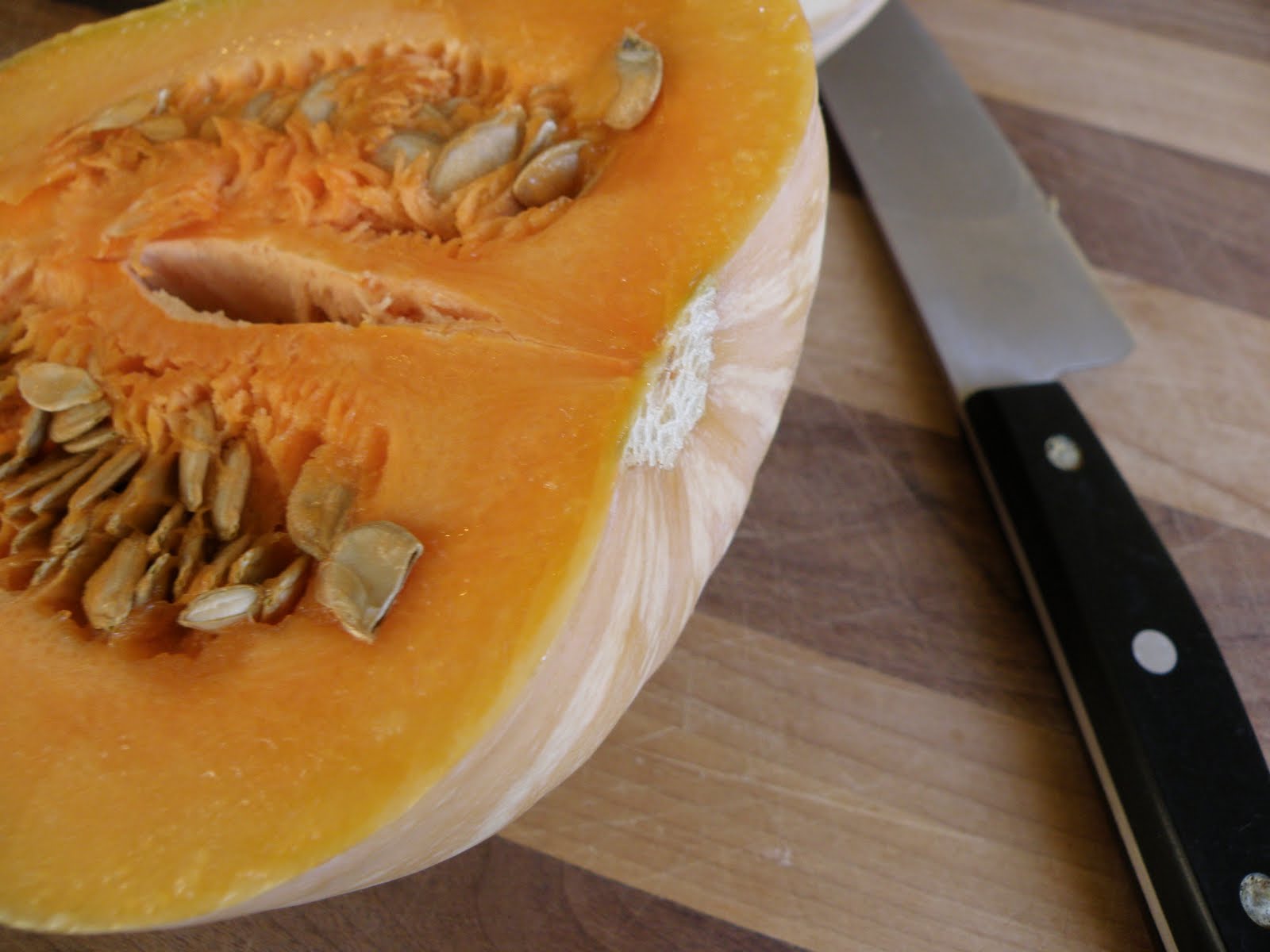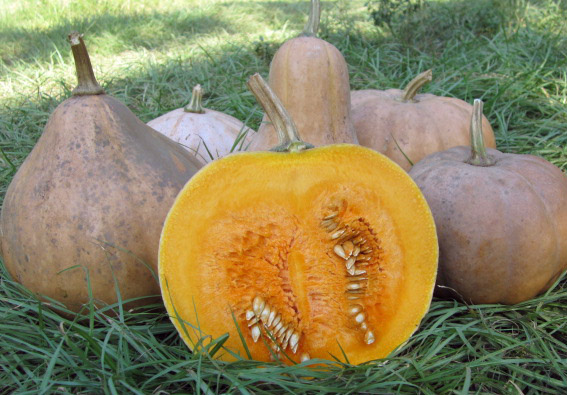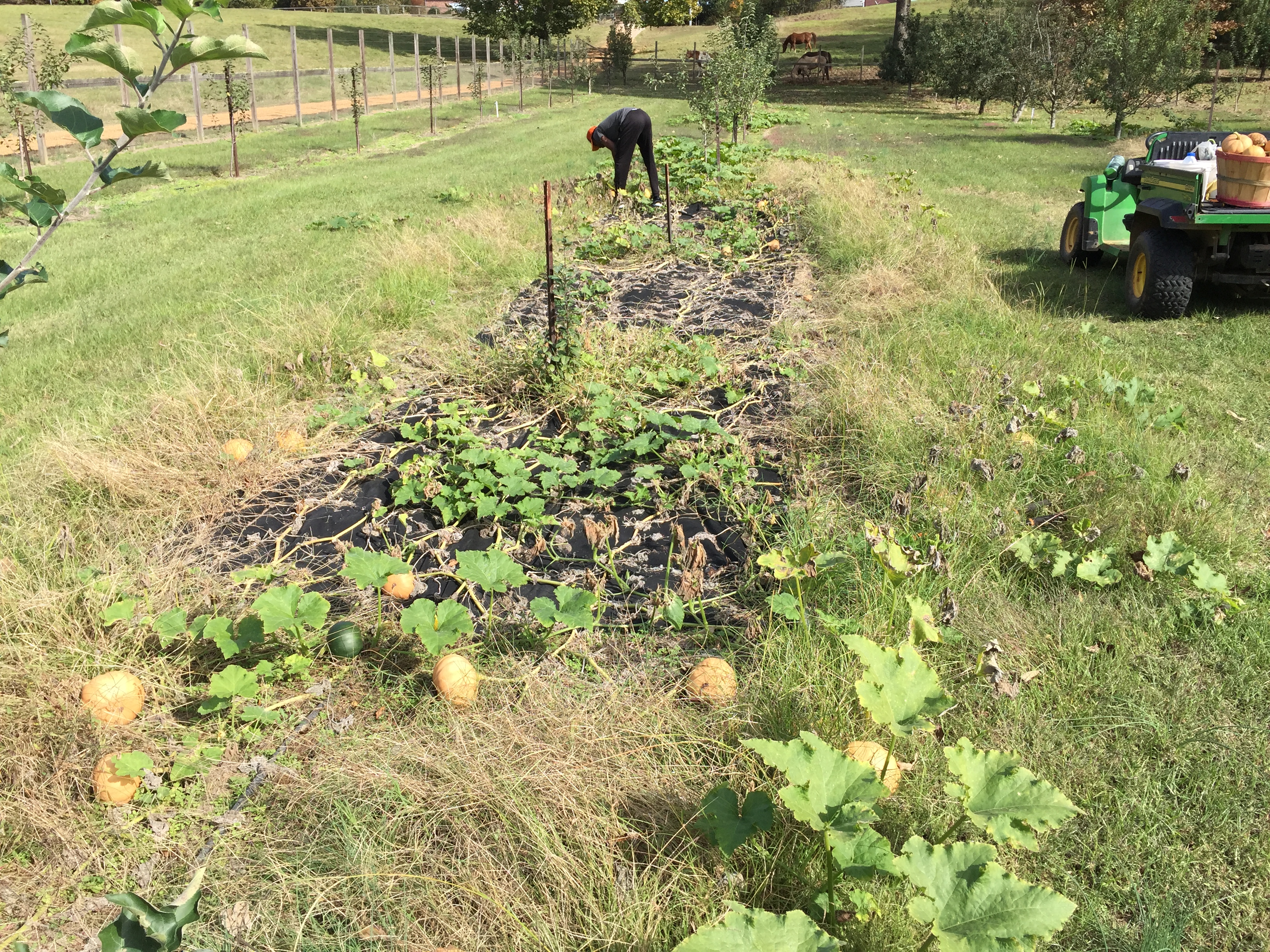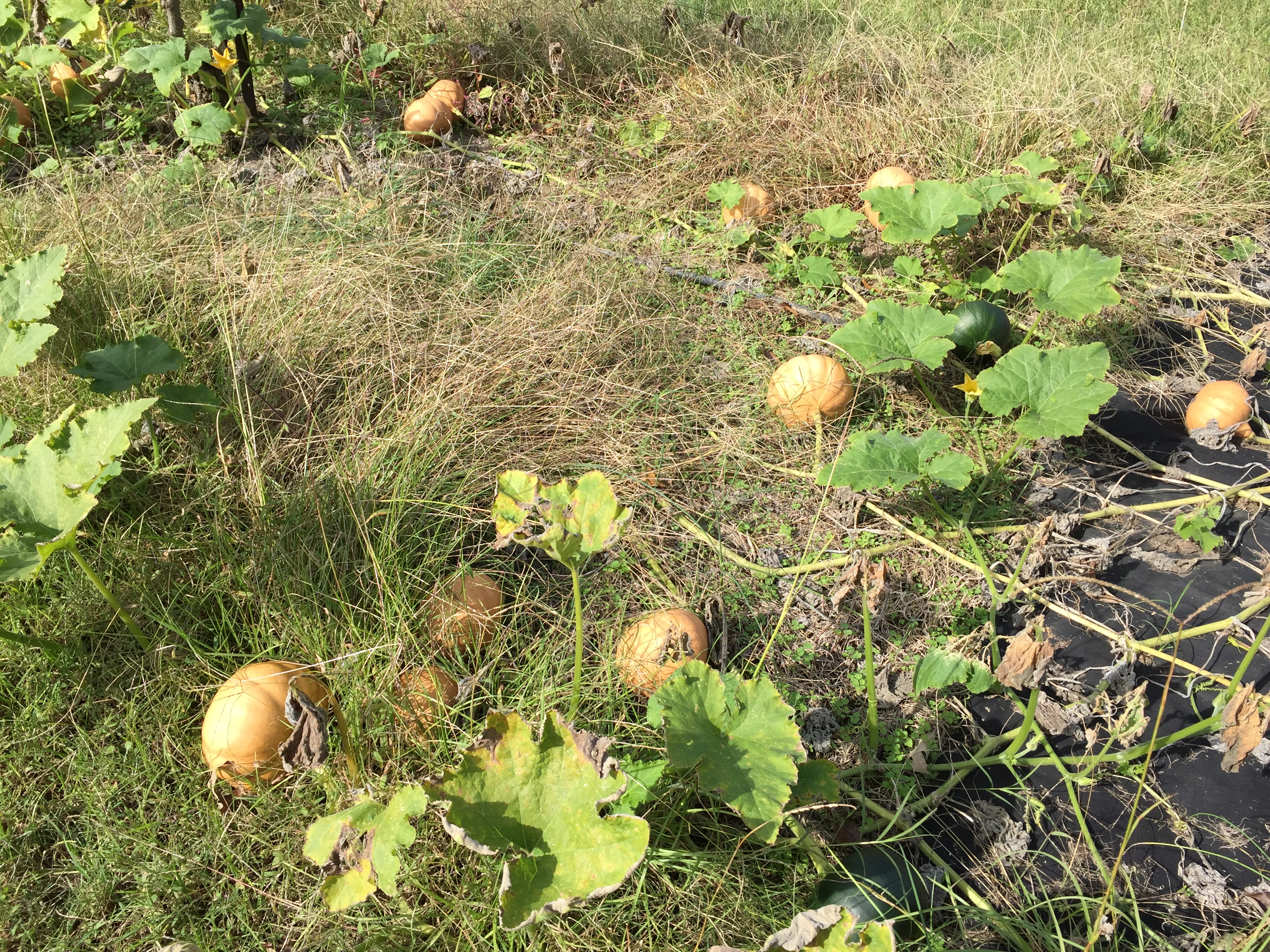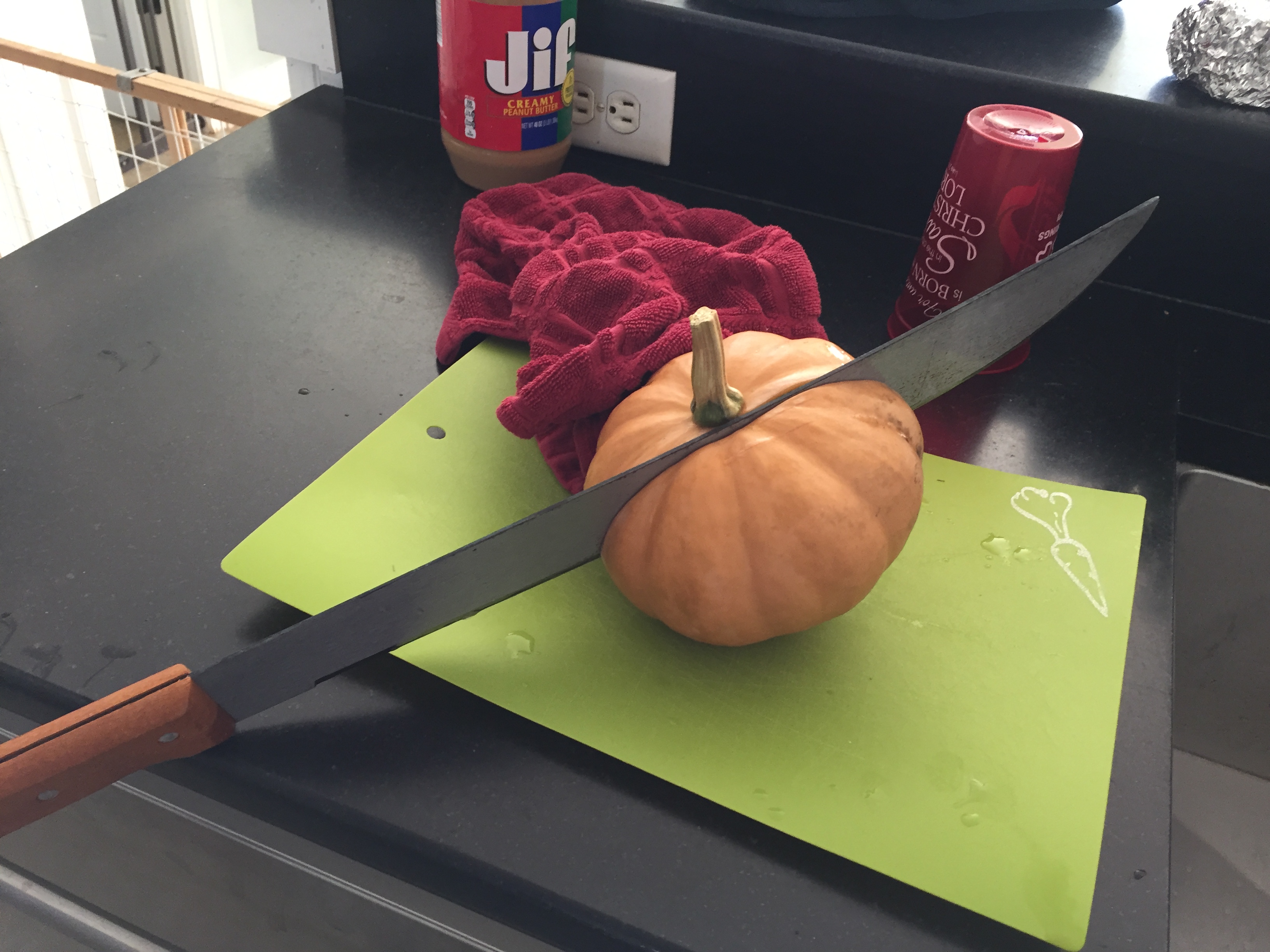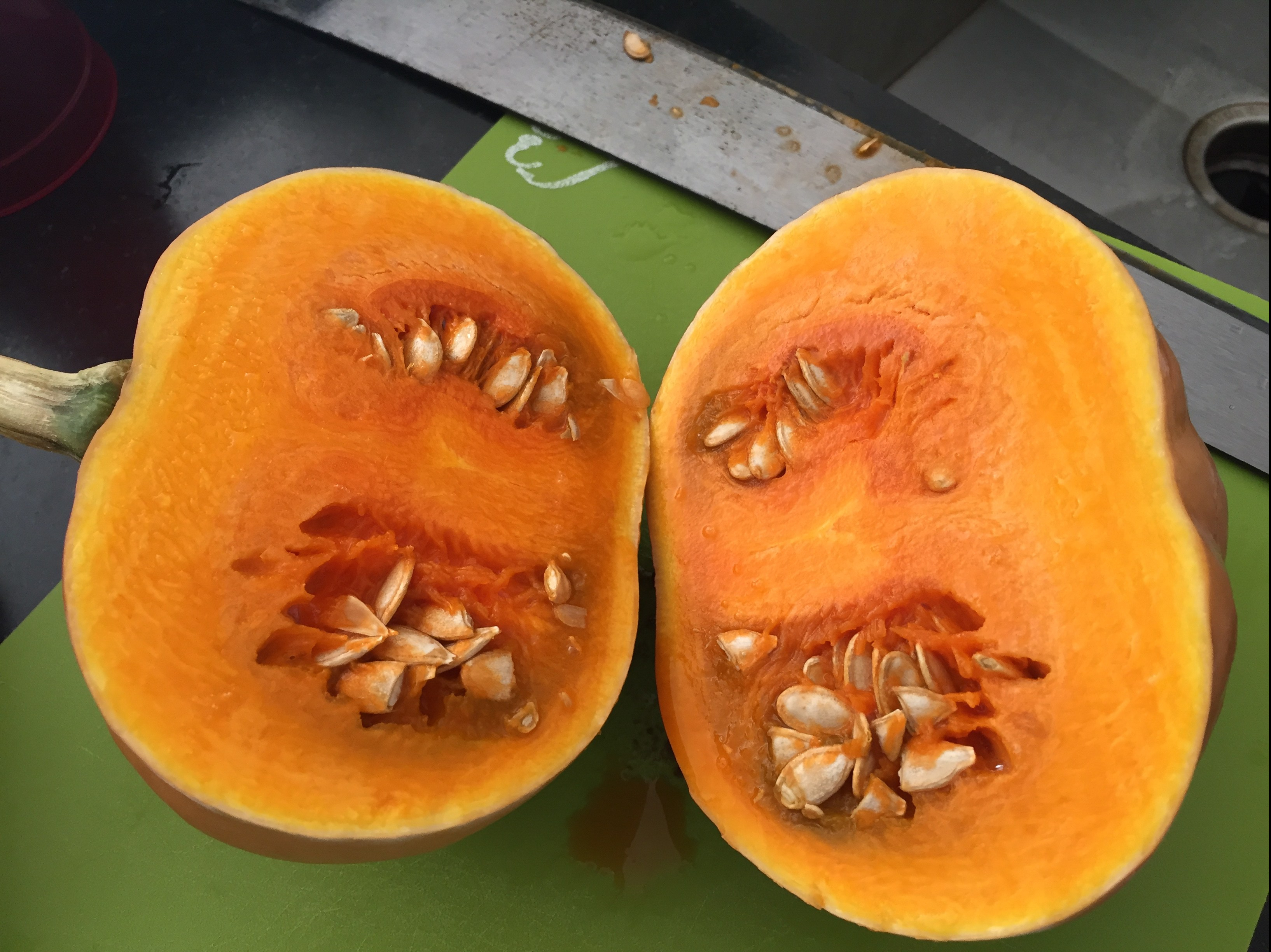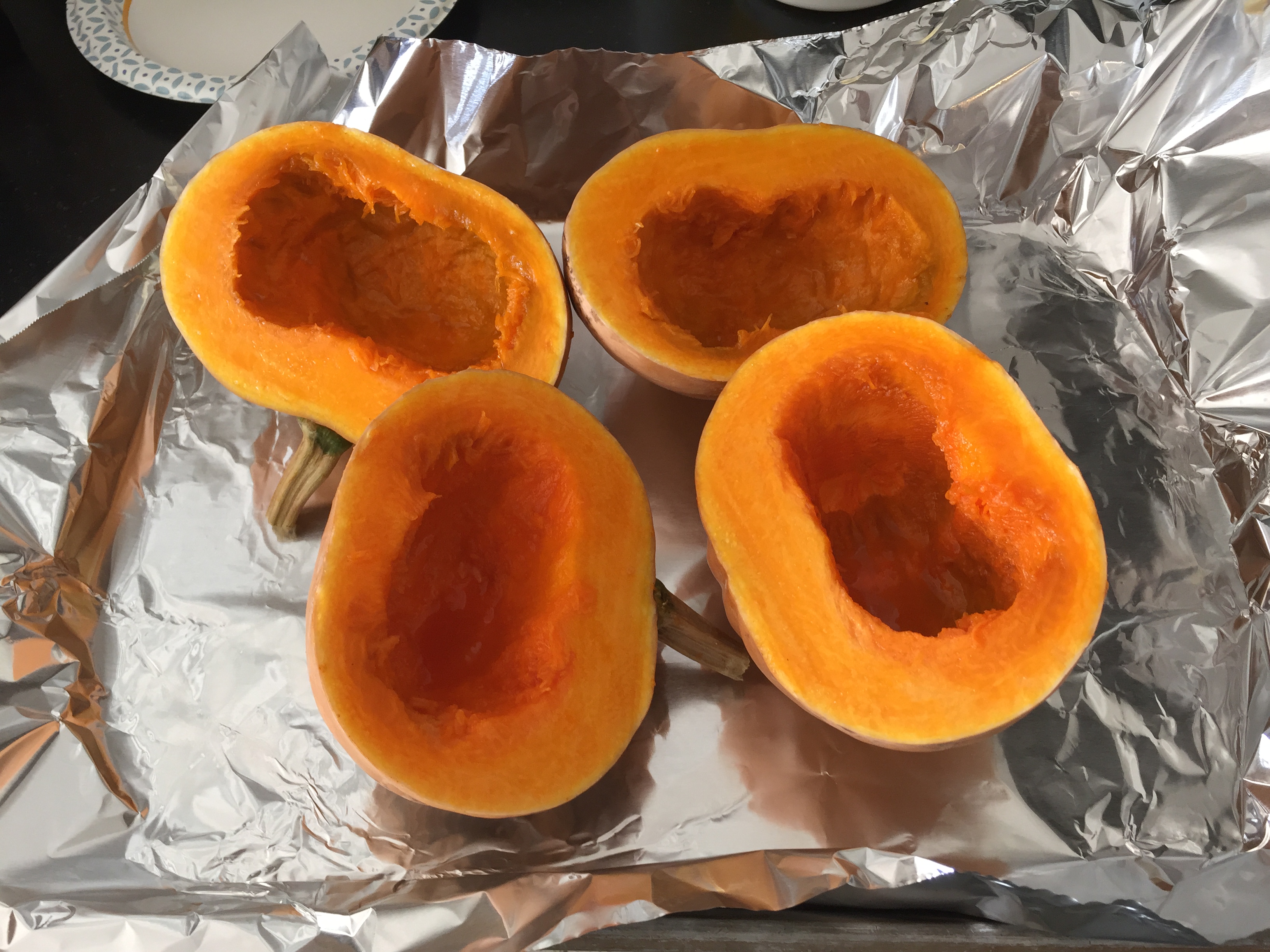Started picking some of the Seminole pumpkins growing between trees in the orchard. The Seminole pumpkin is a winter squash originally from Florida that can handle the heat & humidity of the deep south and is not impacted by the danged squash bugs that kill so many other such plants. Also all the literature states they can stay good for many months even when stored in a garage in Florida.
I call this survival gardening because for me, that means garden varieties that can grow in tough locations with no special care or treatment. Also means items that are very nutritious and that can be easily stored thru the winter months... even in the warm south. As a test, I didn't spray these plants with anything this year... they were own their own. Didn't worry about grass or weeds either. That bushel basket came from just one plant, so just one small seed makes a tremendous amount of food that can be easily stored.
I'm told they taste as good or better than butternut squash and are very nutritious. Will find out soon.
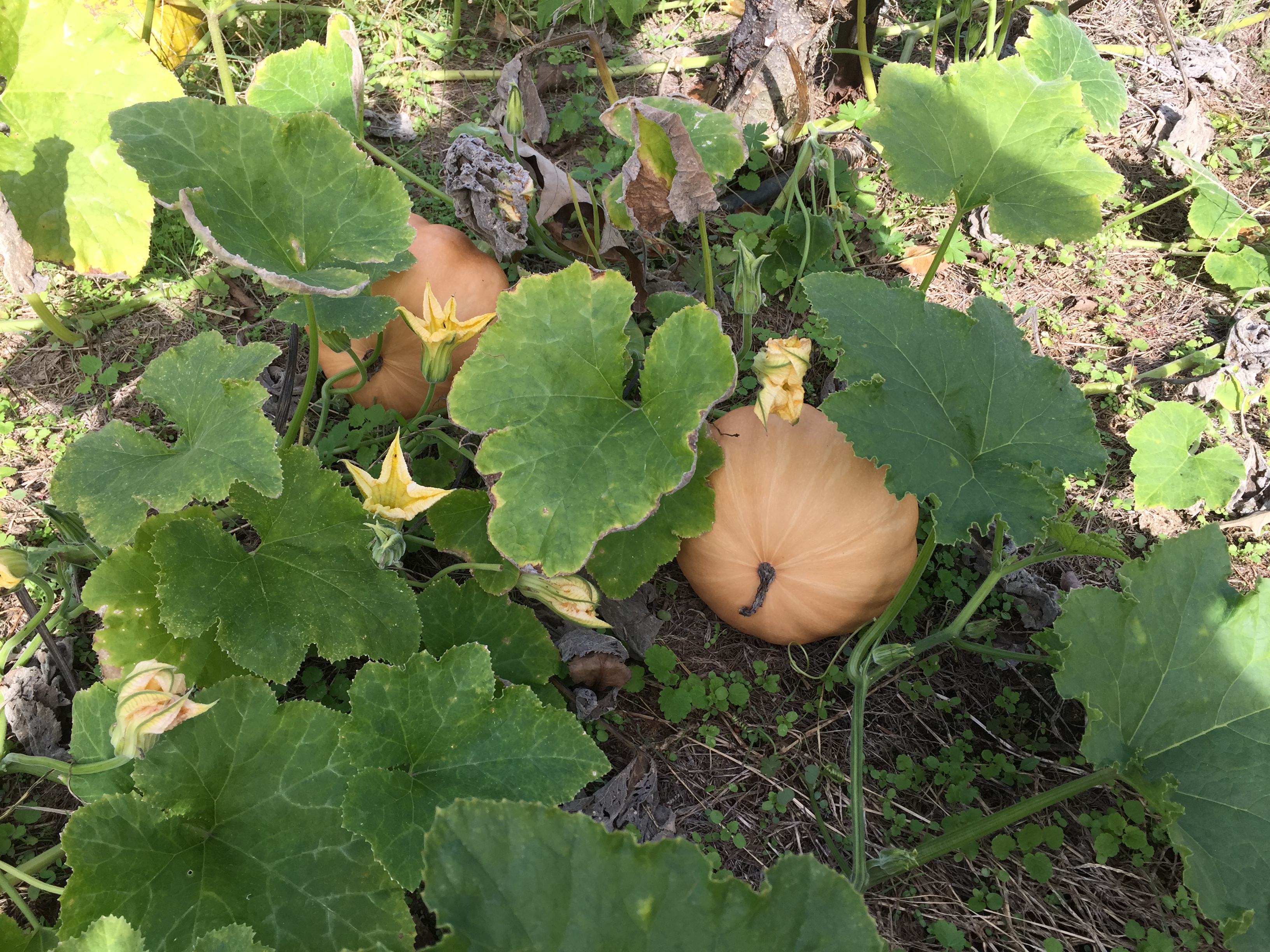
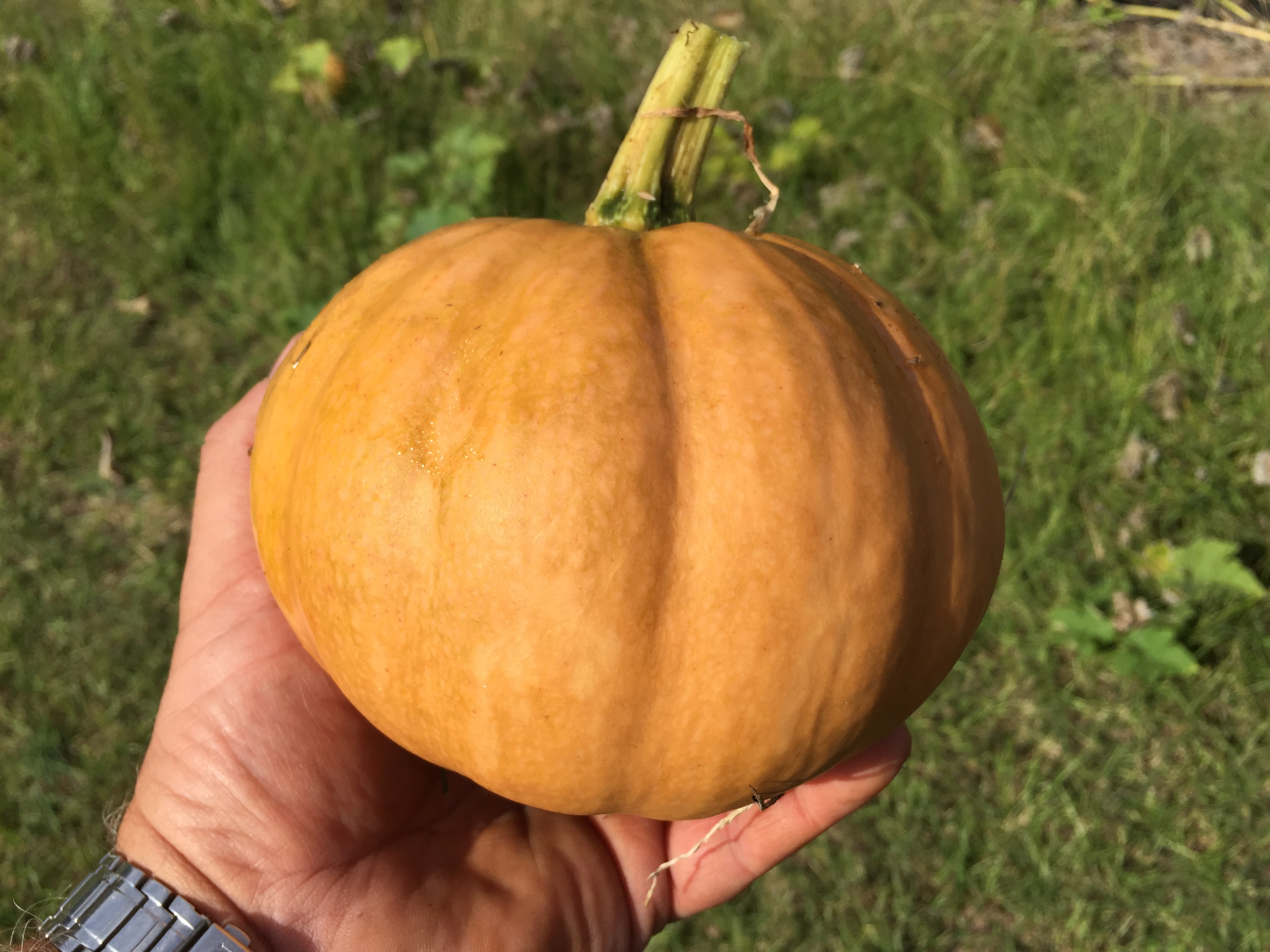
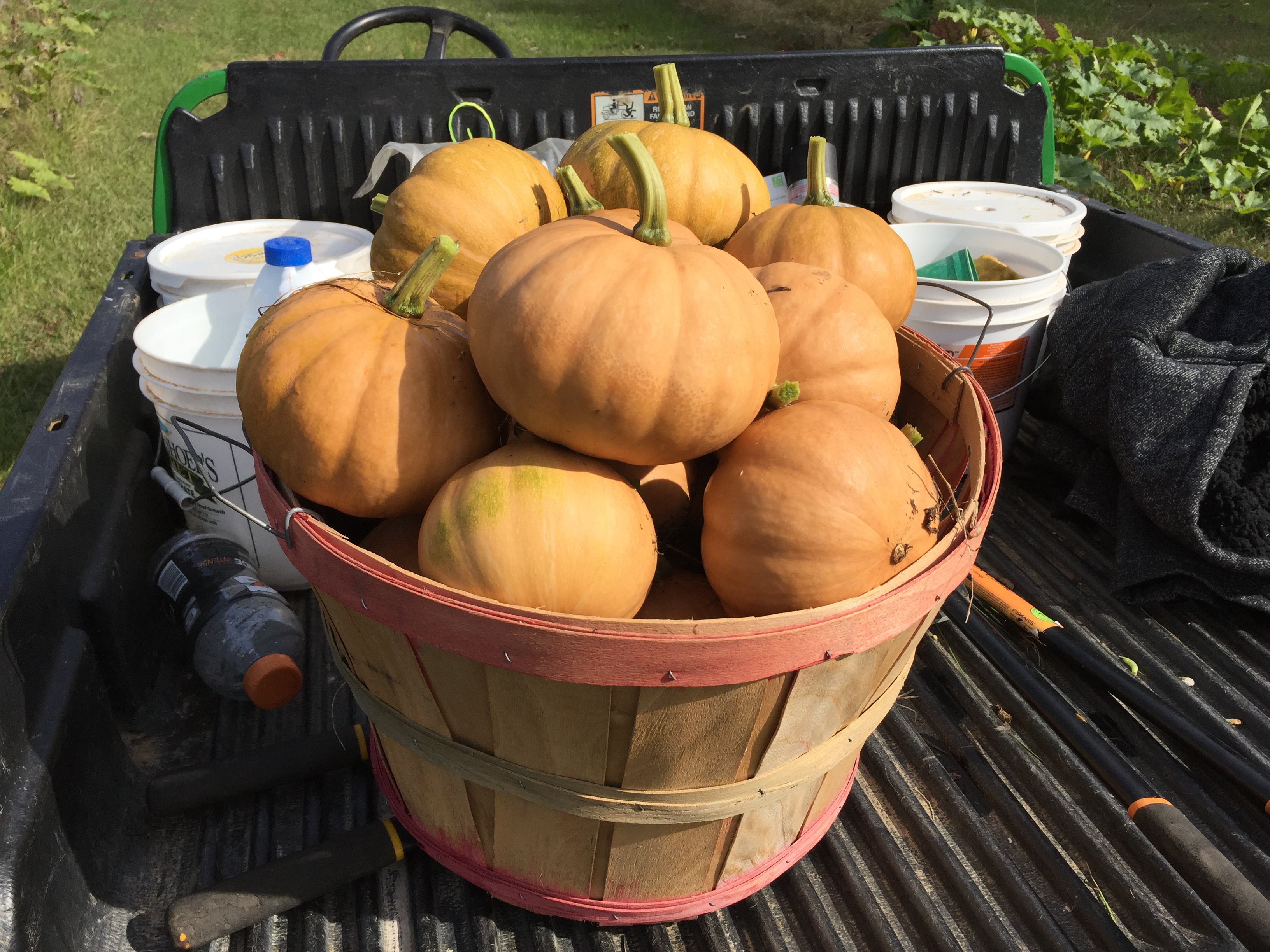
I call this survival gardening because for me, that means garden varieties that can grow in tough locations with no special care or treatment. Also means items that are very nutritious and that can be easily stored thru the winter months... even in the warm south. As a test, I didn't spray these plants with anything this year... they were own their own. Didn't worry about grass or weeds either. That bushel basket came from just one plant, so just one small seed makes a tremendous amount of food that can be easily stored.
I'm told they taste as good or better than butternut squash and are very nutritious. Will find out soon.








